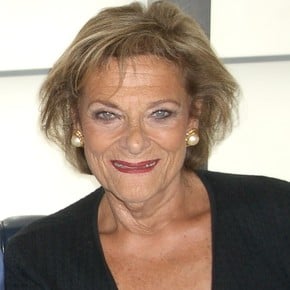Jewish Disability Awareness, Acceptance and Inclusion Month (JDAIM) is not a name that trips off the tongue, and is not on everyone’s calendar yet in Montreal, but that is changing.
This February, the JDAIM schedule is fuller than ever with increased support from Federation CJA. Synagogues, schools and other organizations are hosting a variety of events designed to convey the message that people with disabilities of any kind or mental health issues must be full participants in the Jewish community.
That entails attitude change and practical support, such as making buildings accessible, providing social and employment opportunities or addressing the needs of families.
Launched in 2009 in the United States, and now international, this is the fourth year JDAIM has been officially observed community-wide in Montreal.
“JDAIM is a call to action for all of us as we act in accordance with our Jewish values, honouring the gifts and strengths that we each possess,” says Rabbi Ellen Greenspan of Temple Emanu-El-Beth Sholom, which is participating in JDAIM for the sixth year.
The congregation is devoting Shabbat of Feb. 21-22 to the theme “Giving Care, Taking Care.” The highlight is a symposium on caregiving, whether of a disabled family member or a friend going through chemotherapy.
In 2018, Montreal’s became the first Jewish federation in Canada to hire a full-time community inclusion co-ordinator, a full-time post held by Carly Goodman.
The marquee federation event is the screening of two inspirational movies on Feb. 12 at Cinema Guzzo Mega-Plex Sphèretech. Participants can choose between the English-language The Samuel Project, an Emmy and Golden Globe Award winner about the relationship between a teen and his grandfather, and the French-language Hors Normes, which was in the official selection at the Cannes Film Festival last year, about two educators working with children on the autism spectrum.
On Feb. 13, the federation’s young adult division GenMTL presents “Parents’ Night Out” at the Gelber Centre with guest speaker Shelley Christensen, co-founder of JDAIM in the U.S. and pioneer in Jewish communal inclusion.
On Feb. 15, she is scheduled to speak at Congregation Shaar Hashomayim in the morning and at The Adath synagogue in the evening.
The Adath has been in the forefront of including, especially of young adults with special needs, in its communal life, at the initiative of Rabbi Michael Whitman and Harriet Sugar Miller, a parent of a young woman with such needs. She is co-founder of Club ALink, which is developing social, employment and housing opportunities for those with brain-based challenges.
The popular cooking classes held at the synagogue since last year are growing into Zera Café and Catering, a startup offering Israeli-style food that will employ disabled adults and provide training for future food service jobs. Zera just received a grant from the Jewish Community Foundation of Montreal under a new program recognizing innovation.
Another recipient under that program is the Donald Berman Yaldei Developmental Centre for its new Beyachad Academy, a satellite program in conjunction with the Hasidic Belz community to serve children with autism and other intellectual challenges.
Celebrating JDAIM for the first time is the Spanish and Portuguese Synagogue, thanks largely to its Cantor Daniel Benlolo and his wife Muriel Suissa, who lead the Montreal Shira Choir. Launched last year, the choir is composed of adults with special needs, modeled on one Benlolo founded more than 20 years ago in Ottawa.
They rehearse weekly at the Spanish and are performing at community events and institutions, such as seniors’ residences. “Assisting people with special needs has to be one of my closest encounters with what doing good in this world is all about,” Benlolo says. “One of my proudest moments is when the choir members come up to me and say, ‘you gave me an opportunity’ and I say, ‘I didn’t give it to you, you took it’.”
On the evening of Feb. 8, the choir sings at the synagogue and Benlolo discusses the theme of JDAIM with guest speaker Sam Benamron.
Four years ago, Benamron hired three special-needs young adults to work at his physiotherapy clinic, Physio Verdun. This has worked out so well that he recently hired a fourth.
A short documentary entitled Included0 featuring the employees talking about their satisfaction with their work and being part of a team will also be screened.
“Everyone has a heartbeat,” says Benamron. “It’s our purpose that makes us different, so why not give someone the chance to reach their purpose in life.”
Activities are across the spectrum. An ASL-interpreted children’s story time was held at the Jewish Public Library Feb. 2, while the Cummings Centre has lined up four JDAIM events.
The first event, on Feb. 12, is an intergenerational discussion led by Darla Fortune, a Concordia University assistant professor with expertise in therapeutic recreation, particularly for older adults or people with mental health issues. The last one, on Feb. 27, is an exhibition of resources available for older adults living cognitive or physical disability.
The Benlolos believe the Shira Choir, in its short history, is already serving to raise awareness. It started with six members and today there are close to 25 plus a team of volunteers.
Its appearance a large-scale events like the federation Women’s Philanthropy Challah Bake in November is attracting requests for performances elsewhere, Muriel said. For example, girls at the elementary Akiva School are singing with the choir in preparation for bat mitzvah in March.
“What we are hoping is that acceptance and inclusion are not just something talked about one month a year, but something that is a reality every day,” the cantor said.
For details on all events, visit federationcja.org/inclusion/







